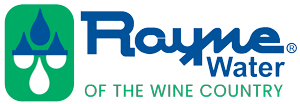UV Sterilization & Purification Systems
We are often asked, “What kind of water filter do I need?” People often wonder, “Under what circumstances do I need a UV Sterilization Unit with my water purification system?” A single water treatment system that will not treat anything and everything. The truth is, water treatment systems are typically designed to remove a particular type of contaminate. So, if your primary complaint is hard water, you need a water softener that will remove the hard-water elements like calcium and magnesium. Or, if you are concerned about lead, arsenic, or pharmaceuticals in your water, you need an RO system that can block those molecules from entering your drinking water. Likewise, if you are concerned about biological agents like e.coli, coliform, viruses, cryptosporidium, or giardia, you need an Ultraviolet Sterilizer.
How UV Sterilization Systems Work
Ultraviolet purification uses a UV lamp enclosed in a protective sleeve. That light’s output is concentrated in the 254 nanometer range to maximize the germicidal properties of that wavelength. The UV lamp is mounted so that water passing through a chamber is exposed to the UV light rays. When harmful microorganisms are exposed to the UV rays, their nucleic acid absorbs the UV energy, which scrambles the DNA of that organism, rendering it sterile and killing the cells.
What Contaminants Does UV Light Destroy?
Unlike chlorine and other commonly used water disinfectants, there are no micro-organisms that are known to be resistant to ultraviolet light. UV is known to be highly effective against bacteria, viruses, algae, molds and yeasts, and disease-causing oocysts. For most known microorganisms, UV light has a eradication efficiency of 99.99%. Some of the most common microorganisms found in water include:
- Bacteria
- Viruses
- Algae
- Molds and yeasts
- Cryptosporidium
- Giardia
- E-coli
- Salmonella typhi (Typhoid fever)
- Salmonella enteritidis (Gastroenteritis)
- Vibrio cholerae (Cholera)
- Mycobacterium tuberculosis (Tuberculosis)
- Legionella pneumophila (Legionnaires’ Disease)
- Influenza Virus
- Polio Virus
- Hepatitis A Virus
UV Sterilization Treatment for Wells
Private well owners often live in rural agricultural areas, which are highly prone to having high levels of biological contaminants from local farming and animal husbandry industries. Well water testing and treatment is at the sole discretion of the well owner – there is no municipal or environmental organization that is responsible for protecting your family from these dangerous contaminants. Even if you are diligent in having your water tested, you probably do not test it more than once a year – but the wildlife and farms around you continue to produce waste every day.
UV Sterilization Treatment for City Water
Municipal water consumers likewise rely on UV Water Sterilization. Most municipalities use inexpensive chemicals like chlorine or chloramines to treat your water and are only required to test for contaminants periodically. (In other words, you are ingesting undesirable chemicals and you may be exposed to disease-causing organisms for days or weeks before they are discovered and you are notified.) Further, there are a number of microorganisms, such as the hepatitis virus and Legionella pneumophilia, that have been shown to be highly resistant to chlorine. Chlorine also negatively changes the taste and odor of your water and produces cancer-causing byproducts called Trihalomethanes.
UV Water Treatment System Applications
UV Water Systems are used in conjunction with other water treatment systems and are typically installed as the last line of defense before the water reaches its point of use. UV systems require pre-filtration at the very least to maintain effectiveness as sediment and other contaminants in the water can create a shadow that prevents the UV rays from reaching the harmful microorganisms.
Our professional water treatment specialists can help you design a custom water treatment program for your water.
Do YOU Need UV Sterilization Water Treatment?
Most likely, yes, regardless of your water source.
